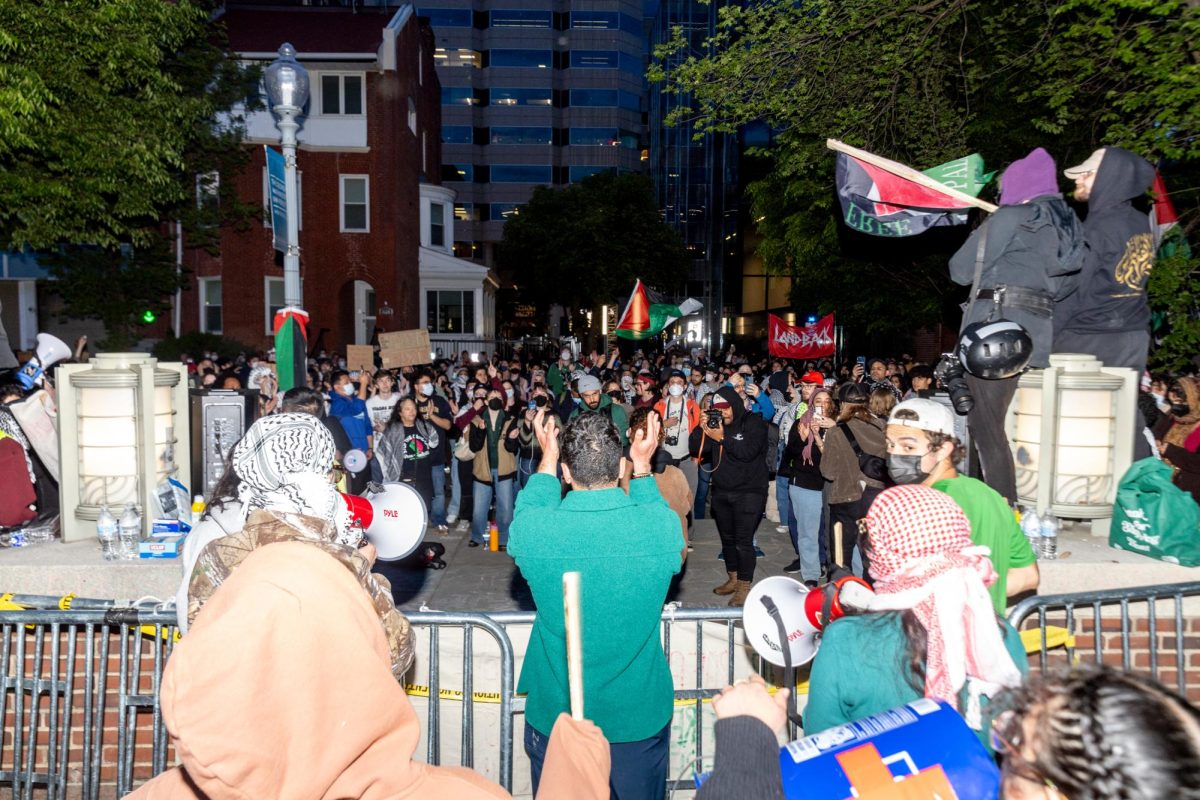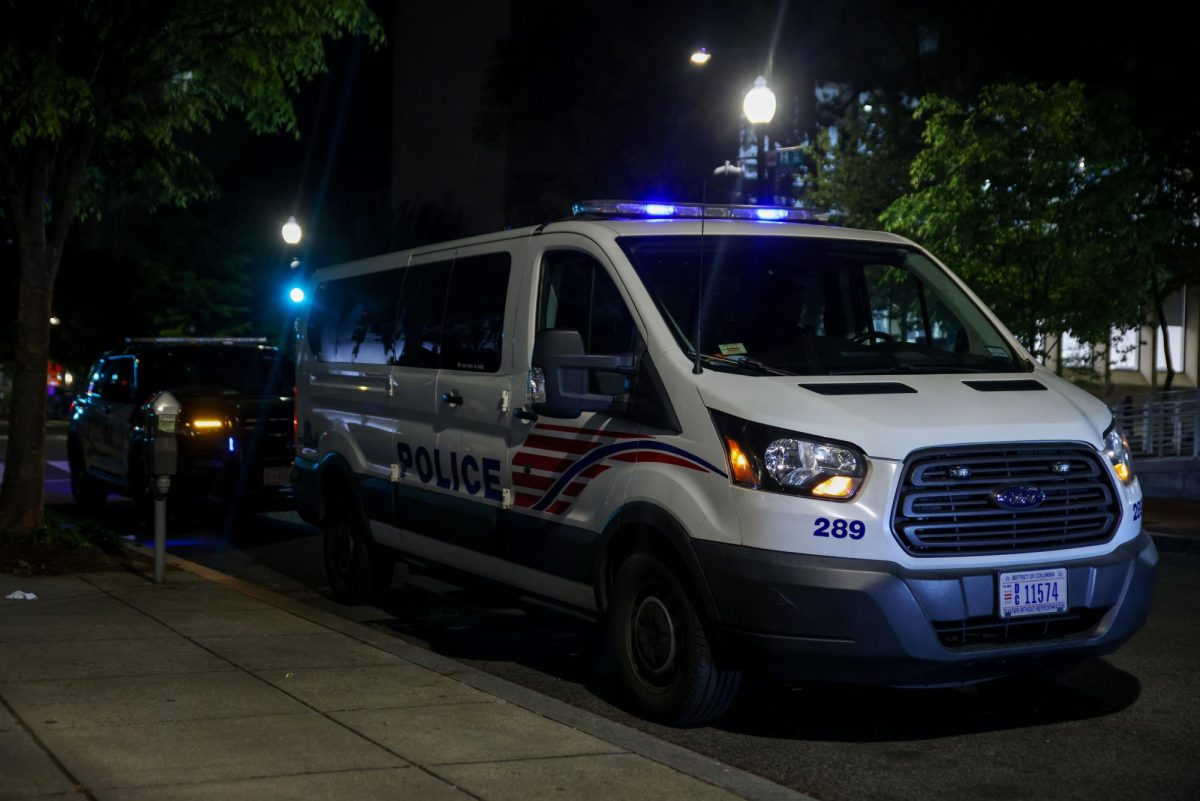Posted Thursday, March 8, 11:30 p.m.
Former U.S. President Jimmy Carter firmly defended his new book, “Palestine: Peace Not Apartheid,” in both prepared remarks and a lengthy, uncensored question-and-answer session at Lisner Auditorium Thursday.
The 39th president has been criticized for the subject matter in his book, which some say contains a pro-Palestinian bias. On Thursday, Carter said his goal was to establish peace between Israeli and Palestinian people in the Middle East.
“The bottom line is this – Israel will never find peace until it is willing to withdraw from its neighbor’s land and permit Palestinians to exercise their basic human and political rights,” Carter said.
When Ambassador Edward “Skip” Gnehm, a Gulf and Arabian Peninsula affairs professor who helped organize the event, asked about his controversial use of the word “apartheid” in the book’s title, Carter defended his decision.
“Apartheid is defined as forced segregation of one people inside territory to keep two peoples apart and as oppression of one people by another. That is exactly what is taking place inside the West Bank,” Carter said, clarifying that his use of “apartheid” only refers to circumstances in Palestinian land.
Carter told the capacity-filled Lisner Auditorium audience that he has spent most of his adult life and a majority of time since the end of his presidency in 1980 traveling and learning about the Middle East’s political and social intricacies.
“Those inside the Gaza strip are completely isolated from the outside world by land, sea and air … They have no freedom at all,” Carter said, referring to the large wall that encircles the Gaza Strip.
Prior to speaking about “Palestine: Peace Not Apartheid” at GW, Carter also spoke about his new book at Emory and Brandeis universities.
“I had some trepidation about speaking at Brandeis because of the altercations taking place on campus before I got there,” Carter said. Some students protested Carter’s visit to Brandeis University, which has a majority Jewish population, before the former president arrived.
Carter denied a request to debate the merits of his book during his visit to Brandeis.
“I’ve never been afraid to debate. (However) I do not see a reason to debate a man from Harvard who knows very little about the present circumstances in the West Bank,” Carter said, referring to Harvard Professor Alan Dershowitz’s claim that he invited Carter to debate him at Brandeis.
During his 25-minute speech, Carter did not shy away from addressing other criticisms of his book, one of which is that it includes factual inaccuracies.
Carter said he considers the book “absolutely accurate.” He added that, “No one has found any error of any substance in the book.”
Carter was clear about one of the main problems he attempted to tackle with the book – the lack of recent discussion he sees about peace between Israel and Palestinians. Carter said the last serious round of peace discussions took place six years ago.
“I saw a program with King Abdullah II from Jordan and he was appealing to the U.S. Congress to promote peace talks and to bring peace to Israel and justice for Palestinians,” Carter said. “I hope he wasn’t speaking to deaf ears, but I’m not sure.”
Before the event early this afternoon, about a dozen people stood outside holding signs that both supported and opposed Carter’s book. They were allowed by Metropolitan Police to stand on the sidewalk several feet away from Lisner Auditorium without a permit to protest.
Rabbi Shmuel Herzfeld, of the National Synagogue in Northwest, brought a group of about six “local activists” together to protest the event. He said that the book unfairly portrays Israel.
“I think they were malicious lies in that book,” Herzfeld said. “He has brought great shame to the office of the presidency. He is a person who – with his malicious and evil rhetoric – encourages terrorism.”
Those on H Sreet who supported Carter’s views said he is a humanitarian and a promoter of world peace.
“He’s not against a race of people, he’s against an ideology,” said Farrah Farley, a recent Georgetown graduate, referring to Carter’s opposition of apartheid. Farley, who is affiliated with Students for Justice in Palestine, related Carter to “a modern day Gandhi.”
After the event, more than 100 students and protesters waited on H Street for Carter to exit from the back of Lisner auditorium. After 45 minutes, Carter left from the front door instead.
-Eric Roper contributed to this report.







